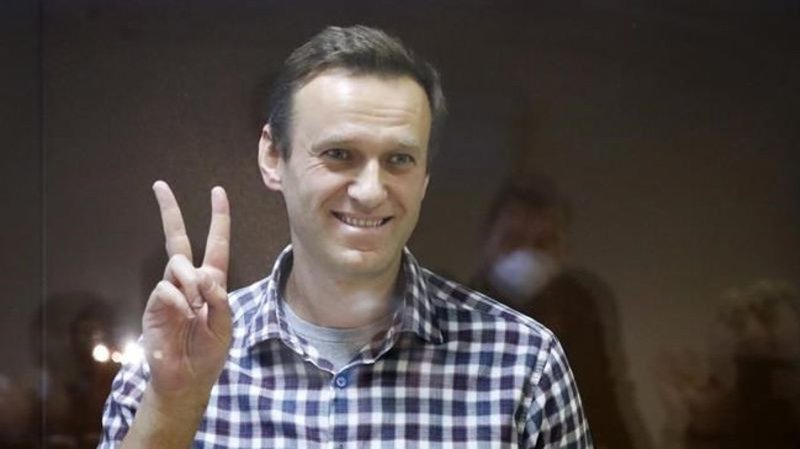
Jailed Russian opposition leader Navalny wins top EU prize
BRUSSELS (AP) — Imprisoned Russian opposition leader Alexei Navalny, President Vladimir Putin’s main critic, was awarded the European Union’s top human rights prize on Wednesday.
In a sign of open criticism of the Kremlin, the leaders of the European Parliament picked the Russian politician for the Sakharov Prize. Other candidates had been a group of Afghan women, and imprisoned Bolivian politician and former interim President Jeanine Anez.
The parliament’s EPP Christian Democrat group announced the decision in a tweet.
“Mr. Putin, free Alexei Navalny. Europe calls for his — and all other political prisoners’ — freedom,” it said.


